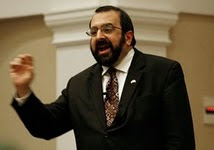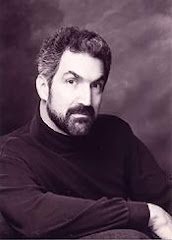In 1948, Israel declared its existence as an independent state. Thousands of Palestinians were made homeless and refugees in a land where they had lived for centuries. Foreign Jewish refugees built homes on the ruins of Palestinian villages.
Many Muslim and Christian countries were understandably upset at the treatment being meted out to Palestinian Muslims and Christians. Their frustration was made worse by the frequent stereotyping of the Palestinians as a nation of terrorists.
For years, Muslim countries (with a few exceptions such as Turkey and Egypt) refused to recognise Israel’s existence. They clung to the views of Jewish thinkers who felt that the creation of a Jewish state before the coming of the Messiah was blasphemous. Among these Jewish thinkers was our very own Sir Isaac Isaacs, Australia’s first Australian-born Governor-General.
Palestinians had almost become accustomed to living in exile and in denial. But wiser heads prevailed, and the golden handshake between Yasser Arafat and Yitzhak Rabin secured at least some form of self-rule for Palestinians. Had the handshake on the White House lawn not taken place, one could safely speculate that the Palestinian cause would not have gained the international respectability and goodwill it now enjoys.
And so we see Palestine recognising Israel’s right to exist. When will Muslim nations follow suit? And should they?
Much Muslim rhetoric on Israel focuses on the Crusades and the liberation wars led by the Kurdish general Salah ad-Din Ayyubi, known in the West as Saladdin. It was Saladdin who won back Jerusalem. It was also Saladdin who made important compromises and who attempted to reach a negotiated settlement at all stages of the conflict.
Saladdin’s pragmatism was perhaps his best feat. The movie Kingdom of Heaven accurately portrays Saladdin as a tolerant and politically astute figure, an embodiment of the famous saying of the Prophet Muhammad: “War is strategy and little else”.
There was no question in Saladdin’s mind about questioning the moral right of the Crusader kingdom of Jerusalem to exist. Saladdin sent emissaries regularly to Jerusalem as part of his negotiations. Other Muslim kingdoms entered into alliances with Jerusalem. Virtually all sent ambassadors.
The Lebanese writer Amin Maalouf, in his masterpiece The Crusades Through Arab Eyes, speaks about the confidence of these diplomats who looked down upon the European residents of Jerusalem as barbaric and superstitious.
At one point Maalouf mentions an incident when a Muslim diplomat is spending time with European Christian friends. The time for prayer comes, and the diplomat asks for the direction to Mecca. When the Europeans cannot tell him, the diplomat scolds them for being so uncouth as to not know the direction of prayer. To pray five times a day was, in those days, regarded as the act of civilised and cultured people.
Saladdin was also famous for offering the Jerusalem king his medical team. Saladdin had a team of surgeons and physicians led by the famous Andalusian Shaykh Musa bin Maymoun al-Qurtubu. Saladdin met Shaykh Musa in Cairo where the Shaykh was a prominent religious figure. Saladdin was impressed with Shaykh Musa’s erudition and his reputation as a leading physician in the Islamic world. Shaykh Musa unhesitatingly accepted Saladdin’s invitation to lead his medical team.
And who was Shaykh Musa? He was the chief rabbi of Cairo’s Jewish community. He is regarded as the greatest Jewish religious figure after the Prophet Moses himself. Saladdin was happy to appoint Moses Maimonides as his chief physician notwithstanding the fact that Maimonides was the author of a famous book declaring Judaism to be superior to Islam.
What does all this have to do with Muslim recognition of Israel? Muslim leaders have to convince their people that the struggle for Palestine is not a struggle against all Jews. Just as Saladdin’s struggle to liberate Jerusalem was not a war against all Christians.
Muslim nations also need to accept that their continued non-recognition of Israel is pointless. Why refuse to recognise Israel when the biggest losers in its creation, the Palestinians, have recognised Israel?
To keep harping on about Israel not having a moral right to exist is pointless. Israel exists, whether Muslims accept it or not. Muslims have to come to terms with the fact that they cannot destroy Israel. Just as some of Israel’s supporters need to understand that they will never win the war on terror if they perceive it as a war on Islam.
A civilisational war between Jews and Muslims may be the goal of extremists on both sides. But neither side would win, although losses on both sides would be enormous. If Muslim countries wish to support their Palestinian brethren, they should give serious consideration to at least formally recognising Israel’s existence.
Some Muslims will object to dealing with Ariel Sharon due to his hardline views and his involvement in war crimes in Lebanon. But Pakistan was still prepared to talk to India even when it was ruled by the Hindu-chauvinist BJP government of Atal Bihari Vajpayee. Pakistan gained important concessions from India on behalf of Kashmiris who were reunited with families across the Line of Control.
There is no benefit for Palestinians by Muslim countries continuing to reject Israel’s moral right to exist. It is as futile as refusing to accept Spain’s right to exist because of the Inquisition and expulsion of millions of Andalusian Muslims. Recognition of Israel has to be put on the Muslim agenda. The sooner this is done, the better.
(The author is a Sydney lawyer.)
© Irfan Yusuf, 2005.











